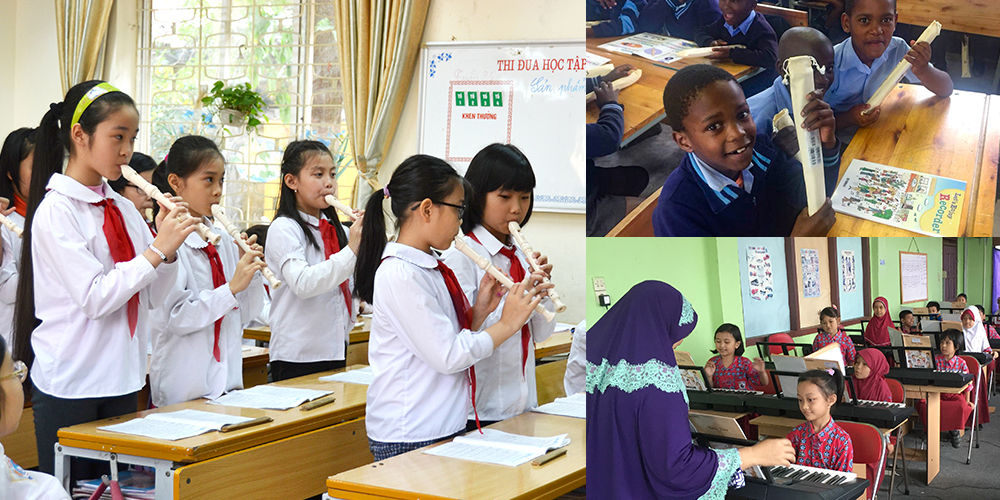
Tanzania is making significant strides in equipping its youth with practical skills through vocational training programs. These initiatives aim to address unemployment, enhance self-reliance, and foster economic growth by preparing young people for the demands of the modern job market.
By bridging the gap between education and industry, vocational training is transforming lives and shaping the future of Tanzania.
A Lifeline for Tanzanian Youth
Vocational training provides young people with hands-on experience in various trades and professions, ranging from agriculture and carpentry to information technology and healthcare.
These programs are designed to meet the needs of both urban and rural communities, ensuring that youth from all backgrounds have access to quality training.
Key Features of Vocational Training Programs
- Skill-Oriented Curriculum
The curriculum focuses on practical skills that are immediately applicable in the workforce. Courses are tailored to industry requirements, ensuring that graduates are job-ready. - Industry Partnerships
Collaboration with local and international businesses helps align training with market demands. Internships and apprenticeships provide students with real-world experience. - Inclusivity and Accessibility
Programs are designed to be inclusive, offering opportunities for women, people with disabilities, and marginalized groups. Many centers provide scholarships and subsidies to make training affordable. - Entrepreneurship Training
Beyond job-specific skills, vocational programs teach entrepreneurship, empowering youth to start their own businesses and become job creators. - Technological Integration
With the rise of digital transformation, vocational centers are incorporating technology into their training, preparing students for tech-driven industries.
Government and Private Sector Collaboration
The Tanzanian government, in partnership with private organizations and international donors, has been instrumental in expanding vocational training opportunities. Key initiatives include:
- The National Skills Development Strategy (NSDS): A framework to enhance the quality and relevance of vocational training.
- Youth Development Funds: Financial support for young entrepreneurs and vocational students.
- Technical Vocational Education and Training Authority (TVETA): Oversight and regulation to ensure standardization and quality.
- Private Sector Engagement: Companies like Tanesco and Vodacom are investing in vocational programs to build a skilled workforce.
Impact of Vocational Training on Tanzanian Society
Vocational training is creating a ripple effect across Tanzania, benefiting individuals, families, and the nation as a whole.
- Reduction in Unemployment
By equipping youth with marketable skills, vocational training reduces unemployment and underemployment. - Economic Growth
Skilled workers contribute to industries such as construction, manufacturing, and services, driving economic development. - Empowerment of Women
Programs targeting women help bridge the gender gap in traditionally male-dominated trades, fostering gender equality. - Rural Development
Training in agriculture and rural-based industries empowers youth in villages, reducing rural-to-urban migration. - Social Stability
With better employment opportunities, vocational training reduces poverty and social unrest, promoting stability.
Challenges and the Way Forward
Despite its success, vocational training in Tanzania faces challenges:
- Limited Resources: Many centers lack modern equipment and qualified trainers.
- Awareness Gap: Some youth and parents undervalue vocational training compared to traditional education.
- Alignment with Emerging Industries: Programs must evolve to include training for emerging sectors like renewable energy and digital marketing.
To overcome these hurdles, increased investment, awareness campaigns, and policy support are essential.
Conclusion
Vocational training is a game-changer for Tanzania, providing youth with the tools they need to succeed in a competitive world. By focusing on practical skills, entrepreneurship, and inclusivity, these programs are shaping a skilled and self-reliant generation.
As Tanzania continues to invest in vocational training, the nation is not only addressing unemployment but also laying the foundation for sustainable economic growth. For the youth of Tanzania, vocational training represents a pathway to a brighter and more prosperous future.
Related articles
- Discover Tanzania University Semester Two Exam Timetable Today
- 10 Proven Strategies to Ace Your Semester One Exams in Tanzania
- The Ultimate Guide to Scoring High in Semester One Exams at Tanzanian Universities
- Semester One Exam Schedule for Tanzanian Universities: Key Dates and Updates
- UDSM Announces Research Scholarships for Climate-Smart Agriculture
- Ministry of Education Denies Changes to Kenya’s University Entry Requirements
- Prof. Carolyne Nombo Opens Key Stakeholders Meeting on Teacher Education
- UDSM-Sida Re-advertises PhD Sponsorship in Marine Sciences
- How Companies in Tanzania Empower Education Through Scholarship Sponsorships


